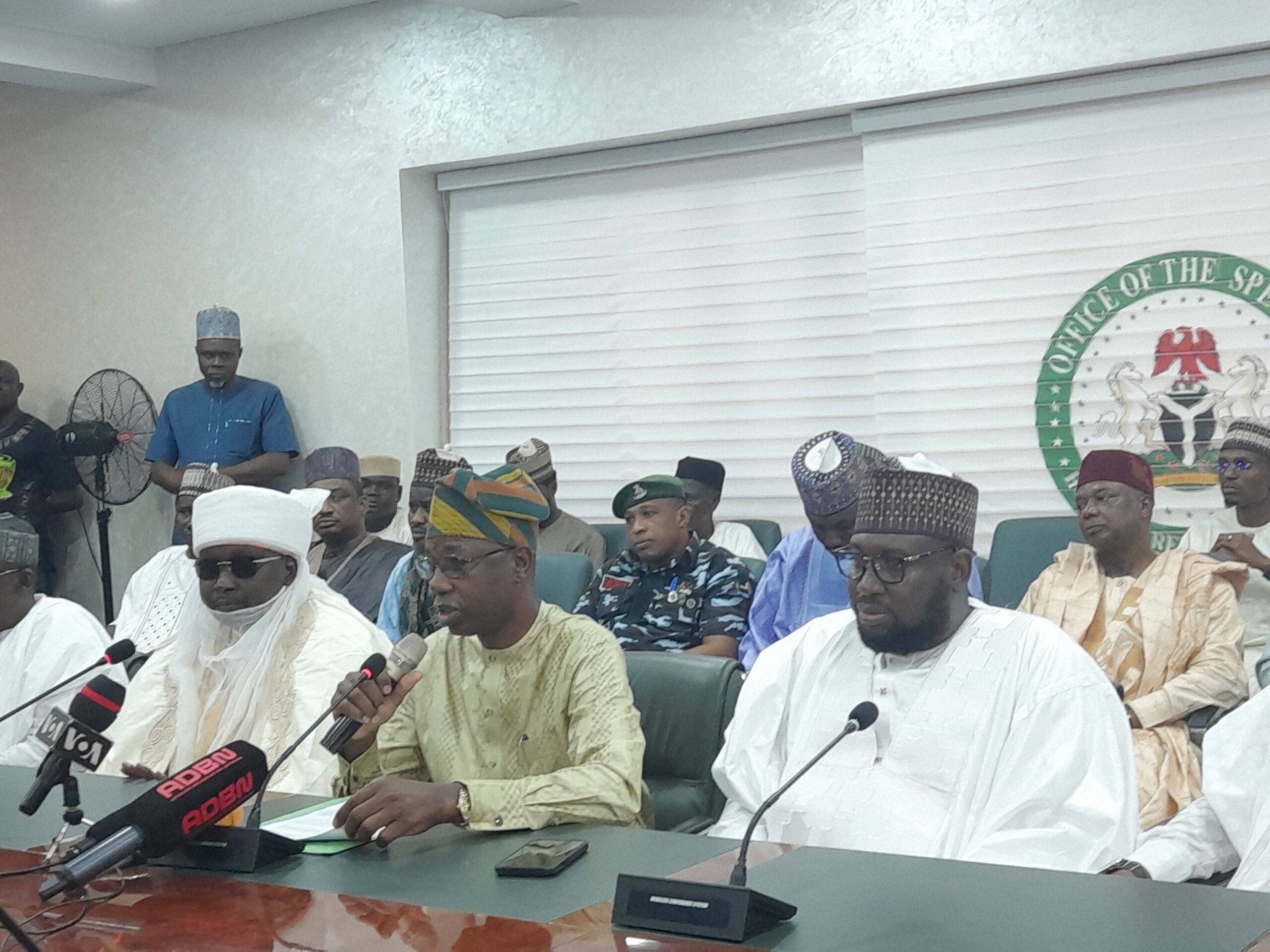News
FG Orders MTN, GLO, Airtel, Others To Block SIMs Without NIN By Feb 28

The Nigerian Communications Commission (NCC) has reiterated its directive to telecom operators to bar telephone subscribers not linked to their National Identification Numbers (NIN) on or before February 28, 2024.
The Executive Vice Chairman of NCC, Dr Aminu Maida, spoke at the NCC’s Special Day at the 45th Kaduna International Trade Fair on Wednesday, February 28.
Maida, who was represented by Reuben Mouka, NCC’s Director of Public Affairs, noted that as a matter of critical national security, telecom consumers must link their NIN to their SIM.
He reaffirmed that the February 28th deadline given to telecom operators to bar subscribers who failed to link their NIN to SIM, stands.
Mouka said: “To this end, the National Communication Commission has directed all telecommunication operators to bar phone lines of subscribers whose lines are not linked to their NINs on or before February 28, 2024.
“As a regulator of the telecommunications sector in the country, the Commission carries out its functions to ensure service availability, affordability, and sustainability for all categories of consumers, who are leveraging ICT/Telecoms to drive personal and business activities.
“Conversely, as we promote economic growth through the development of local content, we must also address the challenges faced by consumers and NCC is committed to protecting their rights while ensuring their satisfaction.”
The NCC boss, therefore, urged telecom firms to prioritize customer satisfaction and uphold the highest standards of service delivery, noting that the commission has implemented measures to safeguard the interests of consumers and businesses alike.
One such measure, he said, was the NCC’s directive on May 17, 2023, that all licensed Mobile Network Operators commence implementation of approved Harmonised Short Codes for providing services to Nigerian telecom consumers.
He added: “The new initiative is enabling consumers using the over 224 million active mobile telephone lines in Nigeria to use the same codes to access services across all networks.”
News
Finally, IGP approves hunger protests across Nigeria

The Nigerian police has finally approved the planned nationwide protests and outlined conditions for participants.
The Inspector General of Police, Kayode Egbetokun, revealed this on Friday while addressing journalists in Abuja.
He urged all groups planning to participate in the proposed nationwide protest to submit their details to the Commissioners of Police in their respective states.
The police boss said this was to ensure the protest was peaceful.
Egbetokun said, “We acknowledge the constitutional right of Nigerian citizens to peaceful assembly and protest.
“However, in the interest of public safety and order, we urge all groups planning to protest to provide necessary details to the Commissioner of Police in the state where the protest is intended to take place.
“To facilitate a successful and incident-free protest, they should please provide the following information: state the proposed protest routes and assembly points; expected duration of the protest; and names and contact details of protest leaders and organisers.”
The police boss said the information expected from the organisers also include measures to prevent hijacking by criminal elements, as well as key identifiers for possible isolation of potential troublemakers.
By providing the information, he said, the police will be able to deploy adequate personnel and resources to ensure public safety.
He said the police needed to know the specific routes and areas for the protest to avoid conflicts with other events or activities.
Mr Egbetokun said the police will “establish clear communication channels with protest leaders to address any concerns or issues that may arise; minimise the risk of violence, property damage, or other criminal activity.
“We encourage all protesters to cooperate with the police, obey the law, and adhere to global best practices for peaceful assembly to guarantee a safe and successful exercise of their rights.
News
Reps North-West Caucus Beg Youths, Citizens In The Region Not To Join Planned Protest

News
Reps Applaud FCT Minister, Wike On AICL Improved Revenue, Infrastructure

-

 News23 hours ago
News23 hours agoIwuanyanwu was a Heavyweight in all ramifications-Abaribe
-

 News22 hours ago
News22 hours agoTinubu, Southern Govs Mourn Iwuanyanwu
-

 News22 hours ago
News22 hours agoSokoto Governor, Aliyu’s Wife Holds Lavish Birthday As Guests Spray Dollar Notes On Her Amid Hunger, Hardship
-

 News22 hours ago
News22 hours agoProtest: President Tinubu In Closed-door Meeting With Traditional Rulers (Video)
-

 News23 hours ago
News23 hours agoTinubu’s Presidency Is Failing Nigerians – Afenifere
-

 News18 hours ago
News18 hours agoNationwide protest: ‘Airport Is Filled Up, Govs, Senators, Reps, Ministers Traveling Abroad’ — Fayose
-

 News23 hours ago
News23 hours agoIGP Orders DPOs, Their Men To Storm Vulcanizer Shops Ahead Of Planned Nationwide Protest
-

 Metro22 hours ago
Metro22 hours ago8 School Children Rescued In Lokoja Auto Crash







